Heating a pool involves various factors that influence the overall cost. In this guide, I’ll delve into each aspect to help you estimate the expenses accurately and efficiently plan your pool heating strategy.
How Much Does It Cost to Heat a Pool?
Typical expenses range from $1,500 to $3,000, influenced by your desired water temperature. This covers heating costs during the period from May 1 to September 30.
What Are the Different Pool Heating Options?
Gas Heaters
Gas pool heaters, powered by natural gas or propane, operate by passing pool water through a heat exchanger. This transfers heat from the heater’s flame to the pool water. They excel at rapidly heating pools, ideal for short-term use.
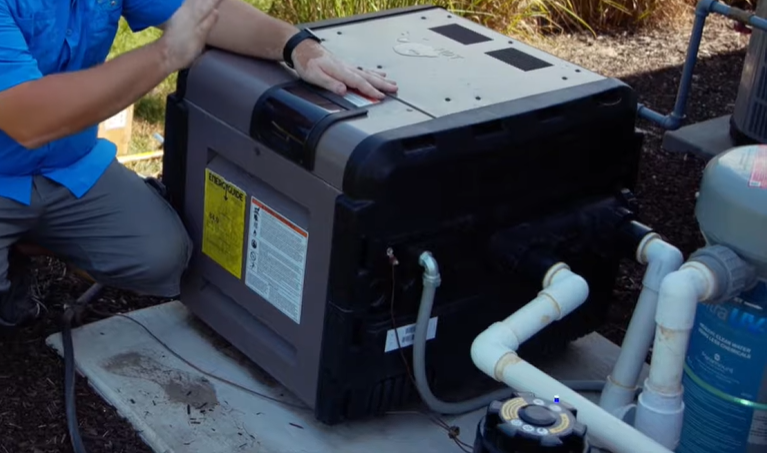
While they can heat pools three times faster than electric heat pumps, they consume up to three times more energy. Keep in mind that older gas heaters are less efficient than newer models.
Although they have a lower initial cost, gas heaters prove more expensive to operate in the long run.
Electric Heat Pump
Electric heat pumps efficiently warm water using less energy compared to natural gas heaters. These pumps work by extracting heat from the ambient air, compressing it, and then transferring it into the pool water.
Even in cooler temperatures, like below 50 degrees, they can harness warmth from the air, although they are most effective and cost-efficient in warmer weather. Various types of heat pumps are available, each suitable for specific situations.
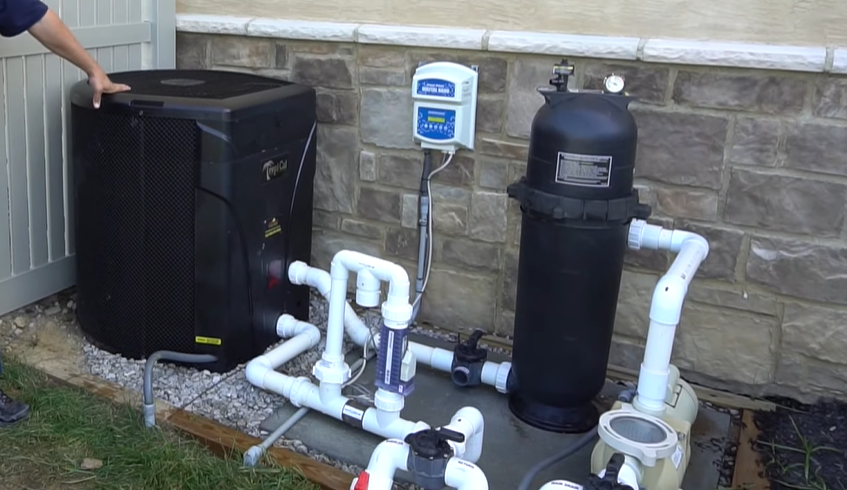
Consulting a pool expert can assist in selecting the most suitable option. While electric heat pumps have a higher initial cost, they prove more cost-effective in the long term.
Other Pool Heating Methods
While solar pool heating and geothermal heaters exist, they’re less prevalent in the northeastern United States. Solar systems pass pool water through filters and solar collectors, warming it before returning it to the pool.
In geothermal heating, heat is extracted from the ground using insulated plumbing lines carrying a liquid mixture, usually water with ethanol or methanol, which is then directed to a heat exchanger for pool heating.
What Are the Benefits of Heating a Pool?
Heating a pool offers a range of benefits that enhance the overall swimming experience and extend the usability of your pool throughout the year. Whether you’re in pursuit of comfort, health benefits, or increased property value, pool heating systems provide numerous advantages.
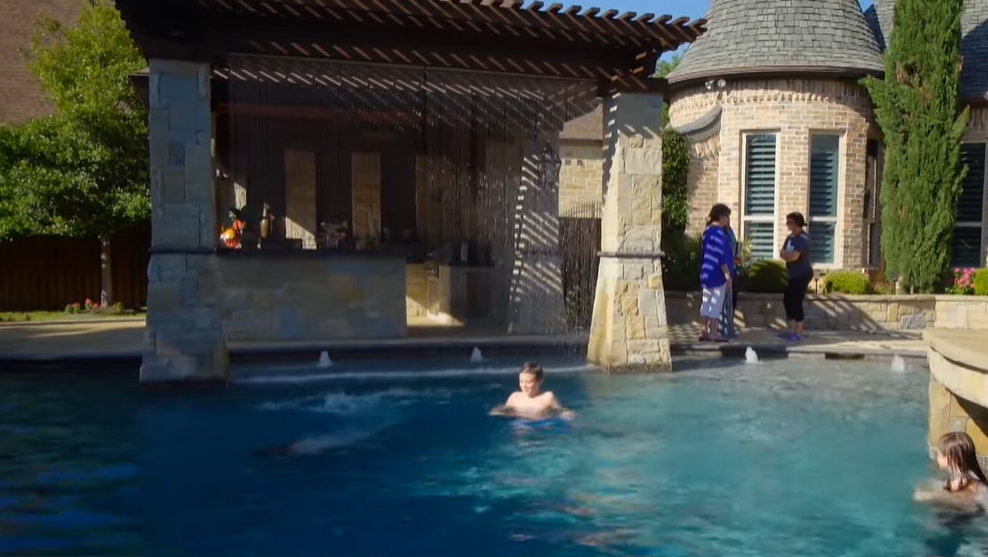
Below are the multifaceted benefits of pool heating, shedding light on why it’s a worthy investment.
Comfort and Enjoyment
One of the primary advantages of pool heating is the enhanced comfort and enjoyment it provides. A warm pool allows you to swim comfortably even when the weather is less than ideal. It turns your pool into a haven, offering respite from chilly mornings, cooler evenings, or unexpected temperature drops.
This ensures that you can make the most of your pool, creating a comfortable environment for relaxation, exercise, or family gatherings, regardless of the season.
Extended Swimming Season
Pool heating systems extend the swimming season well beyond the traditional summer months. With a heated pool, you can start swimming earlier in the spring and continue enjoying your pool well into the fall.
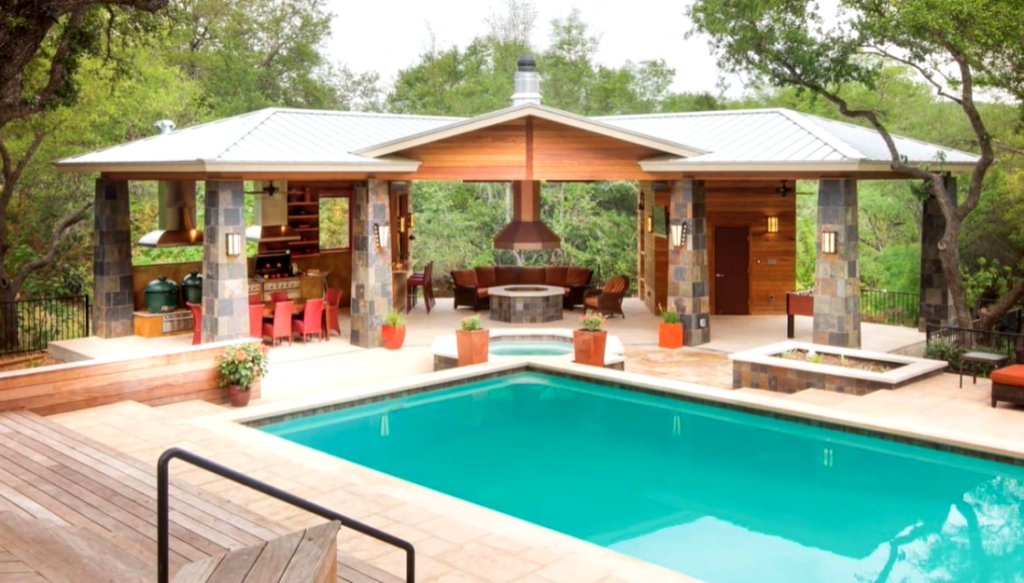
This extension of the swimming season maximizes the return on your pool investment, allowing you to get more use and enjoyment from your pool throughout the year.
Health and Wellness
Heated pools offer various health benefits. The warm water helps relax muscles and soothes joints, making it an excellent option for therapeutic activities and exercise. Swimming in a heated pool can alleviate muscle tension, promote circulation, and reduce stress.
It’s also an ideal environment for rehabilitation exercises and low-impact workouts, benefiting individuals with physical limitations or injuries.
Family Bonding
A heated pool encourages more family bonding time. Whether it’s a weekend barbecue, an evening swim, or a spontaneous dip after a long day, a warm pool creates an inviting space for family members to come together and create lasting memories.

Children and adults alike are drawn to the comfort and allure of a heated pool, making it a focal point for social gatherings and quality time with loved ones.
Increased Property Value
Investing in a pool heating system can increase the value of your property. A heated pool is an attractive feature for potential buyers, especially in regions with cooler climates. It enhances the overall appeal of your home, making it more marketable and potentially fetching a higher resale price. Additionally, it can set your property apart from others in the real estate market.
Flexibility and Convenience
Pool heating provides flexibility and convenience in pool usage. You’re not at the mercy of unpredictable weather conditions or temperature fluctuations. Whether you prefer a warm swim in the morning, a midday soak, or an evening dip, you have the freedom to enjoy your pool whenever suits you best. This convenience is particularly valuable for those with busy schedules.
Energy Efficiency
Modern pool heating systems are designed with energy efficiency in mind. Options such as solar pool heaters and heat pumps are environmentally friendly and cost-effective in the long run.
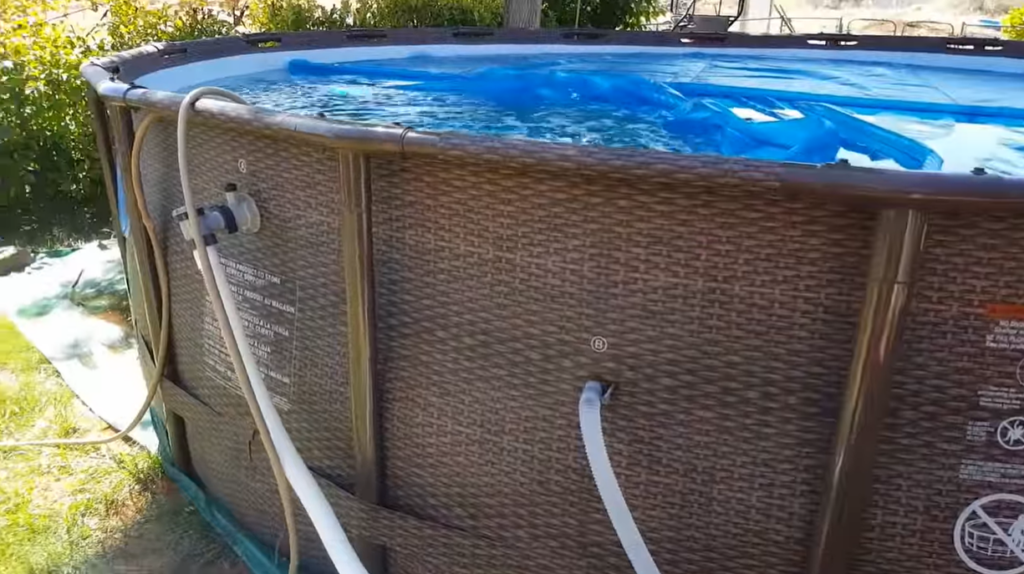
Solar heaters harness the power of the sun to warm your pool, reducing your reliance on conventional energy sources. Heat pumps efficiently transfer heat from the air to the pool water, minimizing energy consumption while maintaining desired water temperatures.
Climate Control
Pool heating allows you to have control over your pool’s temperature, ensuring it remains at your preferred comfort level. You can set and adjust the water temperature to match your preferences, whether you prefer a slightly warm pool for leisurely lounging or a warmer pool for exercise and therapeutic purposes. This climate control ensures that your pool is always tailored to your needs.
What Factors Affect Average Pool Heating Prices?
The cost of heating a pool can vary significantly, influenced by several key factors that play a crucial role in determining the overall expenses. Understanding these factors is essential for accurately estimating and budgeting for pool heating costs. Below are the key factors that affect average pool heating prices.
Pool Size and Volume
One of the most prominent factors influencing pool heating costs is the size and volume of your pool. Larger pools require more energy to heat because they contain a greater amount of water.
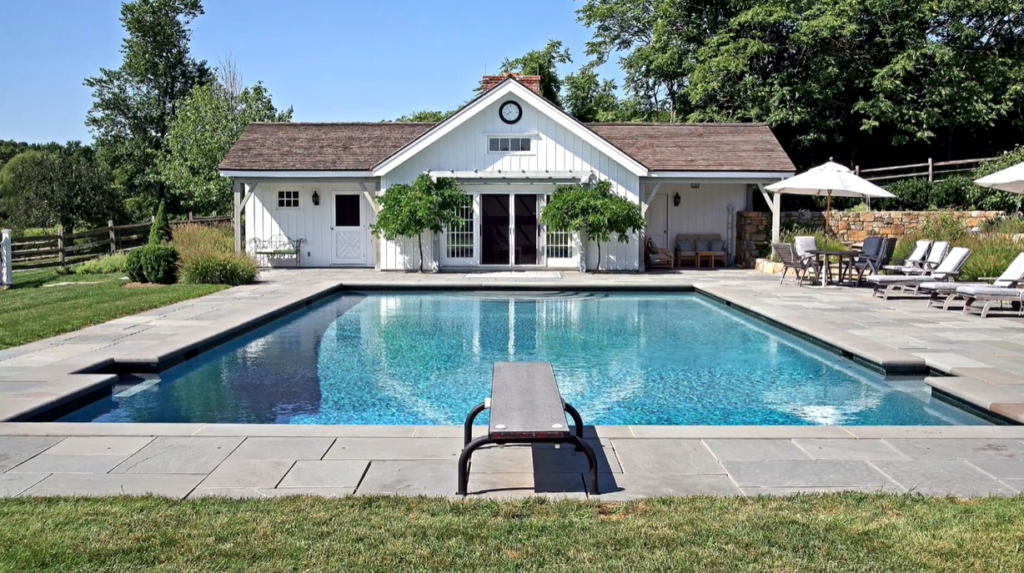
The volume of water determines the heating capacity needed to achieve and maintain the desired temperature, which directly impacts the cost of heating.
Desired Water Temperature
The temperature to which you want to heat your pool water significantly affects the overall cost. A higher desired temperature will require more energy and time to achieve and maintain, resulting in increased heating expenses. Conversely, a lower target temperature will be more energy-efficient and cost-effective.
Location and Climate
Your geographical location and the prevailing climate play a substantial role in determining heating costs. In regions with milder climates, where outdoor temperatures remain relatively warm, heating costs may be lower as the pool loses heat more slowly.
In contrast, colder climates with harsh winters will require more energy to maintain comfortable pool temperatures.
Heating Method
The choice of heating method is a critical factor affecting costs. Gas pool heaters, electric heat pumps, solar heating systems, and geothermal heaters each have unique cost structures.
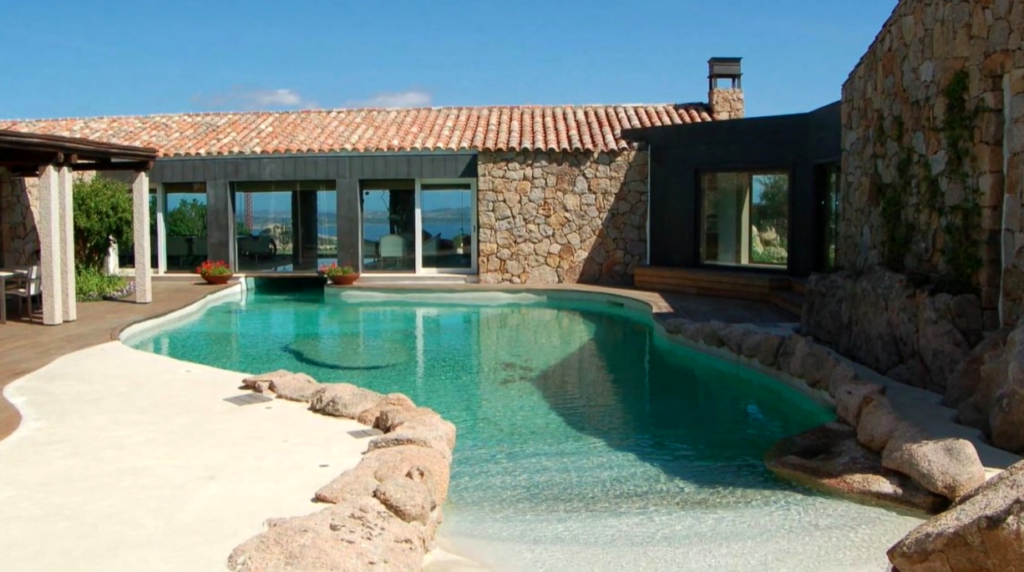
Gas heaters are typically more expensive to operate due to the cost of natural gas or propane, while electric heat pumps and solar systems can be more energy-efficient and cost-effective over time, despite higher initial investments.
Duration of Pool Heating
The length of time you intend to heat your pool also impacts costs. If you plan to maintain a consistently warm pool throughout the year, your heating expenses will be higher compared to someone who only heats their pool seasonally. Efficient scheduling and the use of pool cover to retain heat can help manage costs.
Pool Insulation and Cover
The level of insulation your pool has, as well as the use of a pool cover, can significantly affect heating costs. Well-insulated pools lose heat more slowly, reducing the energy required to maintain desired temperatures.
Additionally, using a pool cover when the pool is not in use can help retain heat, further enhancing energy efficiency and cost savings.
Energy Efficiency of Heating Equipment
The energy efficiency of your chosen heating equipment is a crucial consideration. Modern, energy-efficient systems, such as heat pumps and solar heaters, may have higher upfront costs but can substantially reduce long-term operational expenses [1].
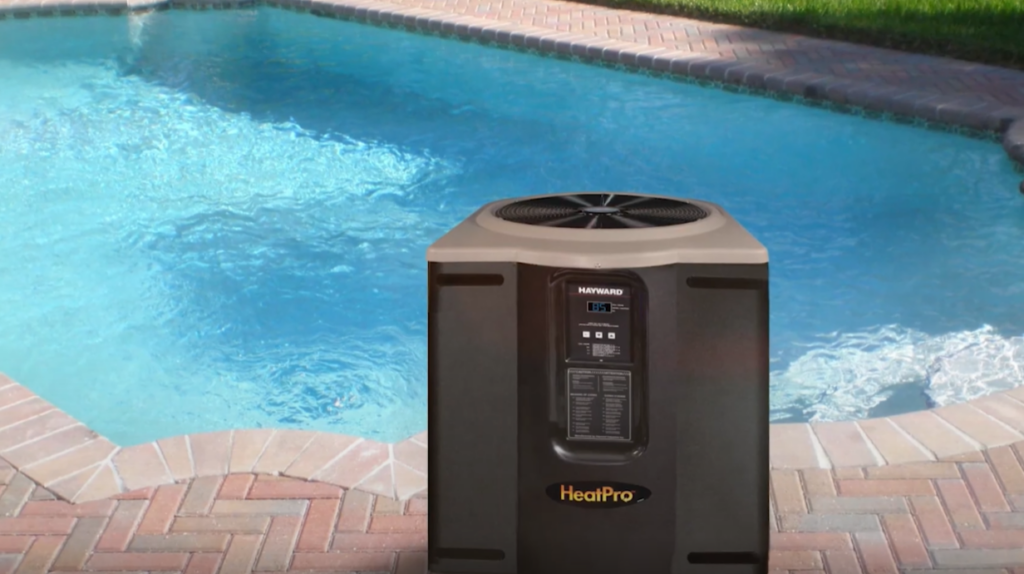
Assessing the efficiency and maintenance requirements of your heating system is essential for managing ongoing heating costs.
What is the Cheapest Way to Heat a Pool?
The most cost-effective method for pool heating involves using solar blankets, solar rings, or even a DIY solar heating system. These options typically come with a price tag ranging from $50 to $200, but they can make a substantial impact on increasing your pool’s temperature without breaking the bank.
Conclusion
Heating a pool incurs expenses influenced by various factors. Understanding these aspects helps you make informed decisions about pool heating costs and strategies.

